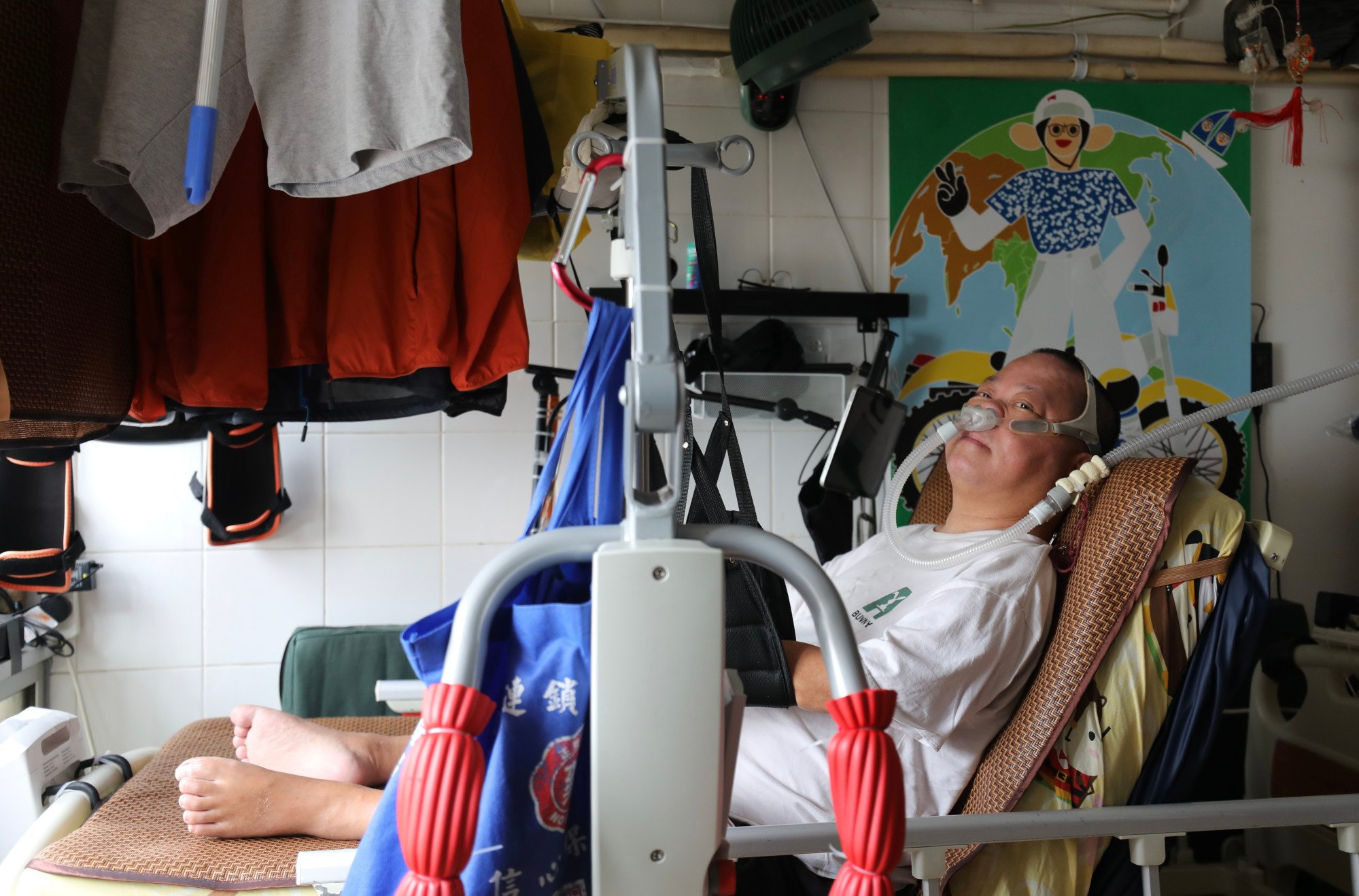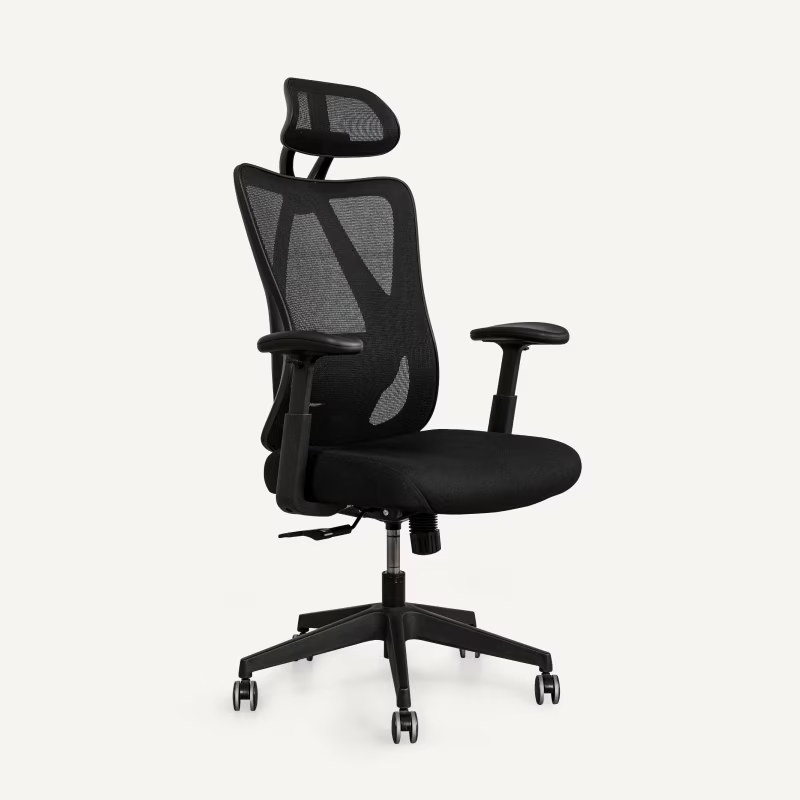
MOTOR NEURONE DISEASE ALS: HONG KONG PATIENTS INSPIRE FUNDRAISING THAT HELPS CITY RESEARCHERS LOOKING FOR A CURE
- A Hong Kong father of two hooked up to a ventilator describes how he lives with ALS, the incurable motor neurone disease (MND) that killed Stephen Hawking
- Hong Kong friends of Scottish rugby player Doddie Weir, who died of MND, and the daughter of a doctor who died of ALS, are raising funds to help find a cure
When Sze Chi-wai received a life-changing medical diagnosis seven years ago, aged 49, he was working as a driver and loved water sports and going out with his family.
Today the Hongkonger cannot move and is hooked up to a ventilator 24 hours a day.
Sze has amyotrophic lateral sclerosis (ALS), a rare neurodegenerative disease that affects nerve cells in the brain and spinal cord.
Do you have questions about the biggest topics and trends from around the world? Get the answers with SCMP Knowledge, our new platform of curated content with explainers, FAQs, analyses and infographics brought to you by our award-winning team.
Falling under the umbrella of motor neurone disease (MND), ALS significantly affects mobility, breathing, communication, and mental well-being, the symptoms progressively worsening over time.
There is no cure.
"For this disease, if I am always unhappy, it will aggravate my condition. And if my condition is aggravated, the burden on my family will be even greater and more difficult, so I will face it positively. There is no other way," says the father of two.
Before his diagnosis, Sze had only heard of ALS from the Stephen Hawking connection: the British physicist died of ALS in 2018, aged 76, having lived with the disease for 55 years. Most people only last a few years.
"The survival period ranges from a few months to 10 years, with a median of three years," says Edwin Chan Ho-yin, a professor at the Chinese University of Hong Kong who has spent much of his career researching the disease.
Rehabilitation, he says, can only relieve the symptoms.
Breathing difficulties are common with ALS, says Chan, a result of weakness in the chest and diaphragm muscles that leads to chronic respiratory failure.
"This weakness in the respiratory system can result in breathing problems and frequent lung infections," says Chan. Over time, some individuals - as in Sze's case - may require a ventilator to assist with breathing.
The mind can also be affected.
How to prevent dementia: does this Amazonian tribe hold the key?
"Cognitive decline is another aspect of ALS, with about half of those with it experiencing brain-related and behavioural changes," he says. "Frontotemporal decline, a form of dementia, also affects some individuals."
"In summary, ALS significantly impacts daily life by affecting mobility, breathing, communication, and mental health," he says. "Managing these symptoms requires various strategies and interventions to maintain overall well-being and independence for as long as possible."
While many might not be familiar with MND, they are likely to have heard of the Ice Bucket Challenge, the viral social media phenomenon that began in 2014 to raise funds for ALS research.
Videos and photos of people dumping buckets of iced water over their heads, and challenging others to do the same, flooded the internet.
To date, it is considered the largest social media movement in medical history, and has reportedly raised more than US$220 million globally for research. That money is much needed.
Researchers are still trying to understand how the disease works: looking for biomarkers - objective medical signs used to measure the presence or progress of disease - to help diagnose and treat it, and the role played by genetics.
Now a charity with its roots in Britain and the sport of rugby is shining a light on the disease in Hong Kong.
My Name'5 Doddie Foundation was founded in 2016 by the late Scottish rugby player Doddie Weir, who died in 2022, aged 52, after a five-year battle with MND.
He set up the charity with friends to raise funds to find a cure for MND and support fellow sufferers. So far it has given more than GBP11 million (US$13.8 million) to 40 research projects.
A group of Weir's friends based in Hong Kong has set up a charity with the same name to raise funds specifically for research and care in the city. According to the Hong Kong Neuro-Muscular Disease Association (HKNMDA) - a non-profit organisation supporting those with MND and their carers - Hong Kong has about 200 ALS patients.
"Doddie was a friend, and in 2017 he came to Hong Kong to raise funds for a children's charity that helped schools in Cambodia," says Martin Murray, who is spearheading fundraising efforts in the city.
Scotland legend Doddie Weir 'feels like a back' in fight against MND
Like many who crossed Weir's path, Murray describes him as a force of nature with a larger-than-life personality and even bigger heart - and some colourful outfit choices.
"He took fundraising to the next level just by his own personality," says Murray of Weir, who was known for wearing bright tartan suits.
Scott Semple is also helping drive fundraising in the city.
"Everything about Doddie was about having fun, and that was right through to the very end," says Semple.
"I think that's what really touched people - he never shied away from his diagnosis and his message was to always enjoy life while you can."
The news of Weir's diagnosis and subsequent death hit the global rugby community hard, boosting fundraising drives globally.
Hong Kong's main fundraiser is a "Doddie Dinner", held in the run-up to last month's Rugby Sevens. It raised about HK$4 million and was attended by more than 20 sporting legends, including British Olympians cyclist Chris Hoy and gold medal-winning rower Steve Redgrave, and Hong Kong sports stars Formula 4 racing car driver Vivian Sui and golfer Taichi Kho.
"After the dinner we realised we needed Hong Kong-focused fundraising so every penny we raise goes directly to Hong Kong in terms of direct research to find a cure as well as palliative care," Murray says.
Other key awareness events planned include a dedicated fundraising day at the AIA Carnival held each January in Central, and a fundraising event to run parallel with the 2025 Hong Kong Marathon.
For Hongkonger Samantha Liu, the disease hits close to home. Liu was about eight years old when her father was diagnosed with ALS in his mid-30s. A doctor, he lived with it for 30 years before succumbing to the disease in 2019, aged 69.
"My father wanted to give back to the community and he set up an endowment fund at the University of Hong Kong in 1998 to support MND research and patient care.
"We were lucky financially and were able to afford resources and equipment that helped my father live longer, but I think a lot of patients in Hong Kong are not as fortunate, and that is why I'm passionate about helping those in need."
How a breast cancer risk assessment saved actress Olivia Munn's life
Liu has helped bridge the gap between My Name'5 Doddie Foundation fundraising and the HKNMDA which, since 1998, has provided psychoeducational programmes, volunteer visits, and social and recreational activities for patients with the aim of improving their quality of life and creating a favourable social environment for those living with the disease and their carers.
The frustrations and toll on a patient's mind and body are immense.
Sze initially struggled to explain his disease to his two children, who were aged eight and three at the time of his diagnosis.
"I was worried about my children's growth, so I met many social worker teams and people to help them, and I made a book called Life Story Book," says Sze.
"This disease has also given me a longer period of time to make arrangements, and now that I have made them, I can live happily every day."
Besides working closely with the HKNMDA, Chan has met MND patients at international conferences.
"In September I met a patient with ALS in Kuala Lumpur. At that time, he had been bedridden for a year and a half ... He wrote two notes to me."
One note read: "If you (researchers) cannot cure ALS/MND, then [patients] are actually sentenced to a 'slow death sentence'. Is there a way/method to reduce the 'slow death sentence'?"
One of the most cruel aspects of the disease, Chan says, is that while a patient's body deteriorates, their mind can stay clear.
"Scientists worldwide, including myself in Hong Kong, are working towards developing both symptom-relieving drugs and medicine to cure MND."
Like what you read? Follow SCMP Lifestyle on Facebook, Twitter and Instagram. You can also sign up for our eNewsletter here.
More Articles from SCMP
India’s Modi risks losing key state election over alleged sex scandal involving ex-PM’s grandson
Dinosaur footprints in China hint at giant raptors that defy Jurassic Park depictions
China KOL with 5 million fans spitting image of murder fugitive, prompting followers to call police
This article originally appeared on the South China Morning Post (www.scmp.com), the leading news media reporting on China and Asia.
Copyright (c) 2024. South China Morning Post Publishers Ltd. All rights reserved.
2024-05-02T09:39:15Z dg43tfdfdgfd











